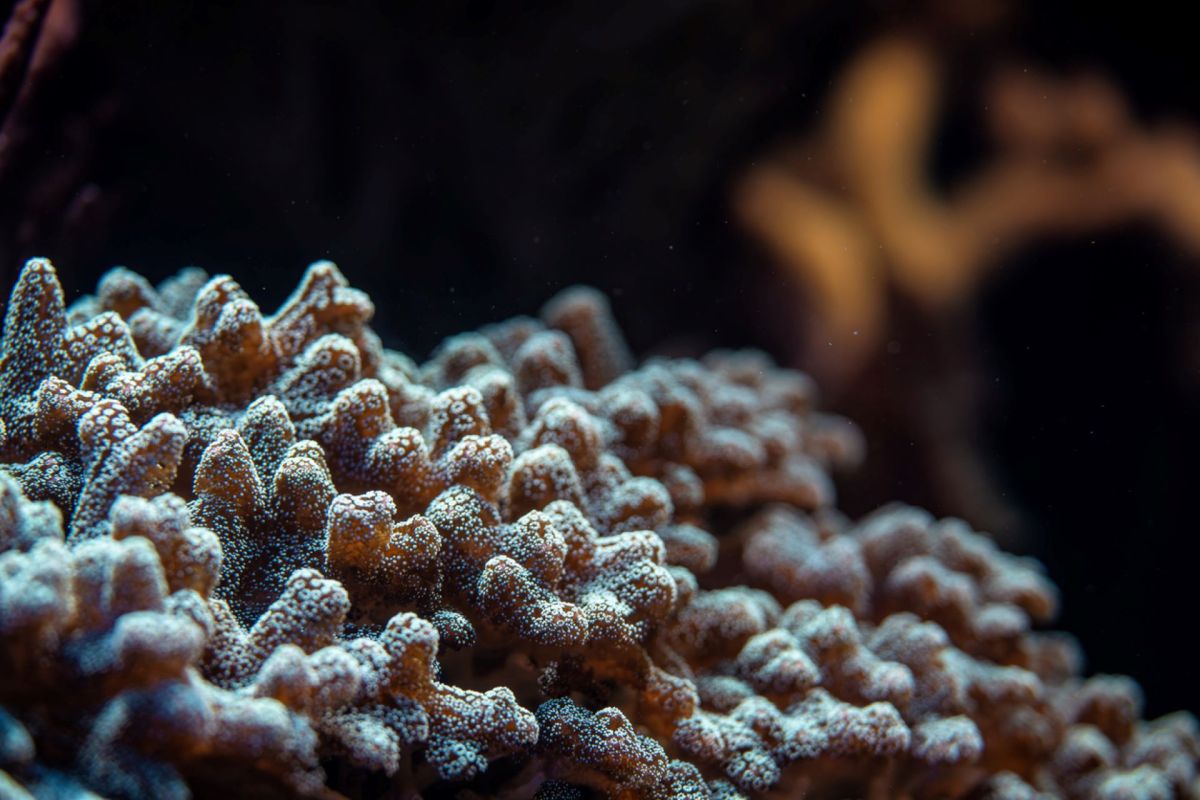Scientists have been working on a way to preserve coral species with the hope of one day replanting them in areas affected by deadly habitat changes, and they just reached a new breakthrough, according to Hakai Magazine.
Cryopreserving coral has been conducted for around 20 years, with baby corals frozen at temperatures as low as -320.8 degrees Fahrenheit (-196 degrees Celsius).
But both freezing and thawing are dangerous for coral survival. The conditions need to be just perfect for the process to work, with a lot of patience to get things right.
Graduate student Arah Narinda from the National Sun Yat-sen University in Taiwan has been able to reanimate frozen corals and watch as they start to bud — or produce baby corals — as they reach adulthood.
"It's like if you see Captain America buried in snow and, after so many years, he's alive," she told Hakai Magazine. "It's so cool!"
First, the corals get washed with antifreeze to prevent damage during the freezing stage, where they are dunked in liquid nitrogen. Gold particles are added to the antifreeze to help the corals warm evenly while thawing.
This step worked, but the corals were still not growing to adulthood. So Narida mixed different antifreeze chemicals together, and she used a high-powered laser usually intended for welding jewelry to thaw them quickly. The antifreeze was then washed off, and the corals were rehydrated.
Narida achieved an 11% survival rate, and the corals were able to grow to adulthood.
Coral cryobiologist at the Federal University of Rio Grande do Sul in Brazil, Leandro Godoy, described Narida's research as "a huge step" for coral survival, per Hakai Magazine, noting that coral survival rates in the wild are closer to 5%.
According to the United States National Ocean Service, human-caused pollution from burning dirty energy sources, as well as pollution from industry, agriculture, and deforestation, produces carbon dioxide, which is absorbed in the ocean and leads to acidification that is deadly for corals.
Rising ocean levels, increasing global temperatures, water pollution, and extreme weather events like storms also lead to coral mortality.
And corals are extremely important for some of the most valuable ecosystems on the planet.
The Environmental Protection Agency says corals provide habitat, breeding, and spawning grounds for over one million aquatic species. At the same time, they're also a natural barrier for coastal areas in times of storms and flooding.
Corals are key to biodiversity, and they play a significant role in global food supply.
Protecting corals from bleaching and acidification is essential, and while the scientific advancements in potentially replanting them are encouraging to restore vital reefs, cutting pollution is something we can all do to prevent excess coral deaths.
Join our free newsletter for weekly updates on the coolest innovations improving our lives and saving our planet.









